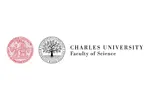We're moving! This site will be relocating to goingto.university in 2026. Please update your bookmarks to the new address.


Czech Republic (the)
Faculty of Science, Charles University| The award | How you will study | Study duration | Course start | Domestic course fees | International course fees |
|---|---|---|---|---|---|
| PhD | Full-time | - | - | - | - |
Project summary:
Asymmetric organocatalysis has grown into one of the pillars of asymmetric catalysis, employing various small organic molecules as efficient catalysts, including N-heterocyclic carbenes (NHC). NHCs can efficiently catalyze transesterifications, acylations, polymerizations, and other reactions, and they also found widespread application as ligands in transition metal catalysis. Whereas NHCs containing imidazolylidene framework dominate as ligands in transition metal catalysis (to stabilize coordinatively unsaturated active species), triazolylidene carbenes are the main players in catalytic processes using NHC as catalysts. The vast majority of enantioselective transformations catalyzed by NHCs proceed through the umpolung of aldehydes. In the last few years, azolium dienolate as an interesting intermediate generated from carbonyl compounds and NHC, has received attention as an alternate strategy for remote functionalization (?-position of enals). We have recently developed new type of enantioselective formal cycloadition reaction based on azolium dienolate chemistry. The goal of the project is to develop new enantioselective carbon-carbon bond-forming reactions and the construction of biologically relevant (hetero)cyclic molecules based on azolium dienolates. Requirements: M.Sc. degree in organic chemistry, organometallic chemistry or related fields, experience with synthesis and characterization of small molecules, strong interest in organic synthesis and catalysis, open to learning new techniques and working in a team, good knowledge of English.
Selected recent publications of the research group:
1. L
Contact Faculty of Science, Charles University to find course entry requirements.
Below are some suggested courses at other providers that you may also be interested in:
Negotiation and Conflict Resolution MSc
Columbia University, School of Professional Studies
Find out moreGeneral Veterinary Medicine DVM
University of Veterinary Medicine and Pharmacy in Košice
Find out moreIf you do not meet the entry requirements for this course then consider one of these postgraduate preparation courses from another institution:
Graduate Diploma of Engineering (Civil: Structural)
Engineering Institute of Technology
Find out moreThere are 136 other courses listed from Faculty of Science, Charles University. A selection of these are displayed below:
A postdoctoral position to study thermal effects in landslides Postdoc
Faculty of Science, Charles University
Find out moreActivation of STING signaling in tumors associated with human papillomaviruses PhD
Faculty of Science, Charles University
Find out moreAdvanced Electron Microscopy Techniques for the Characterization of Tunable Zeolitic Architectures PhD
Faculty of Science, Charles University
Find out moreAmphiphilic Peptidomimetics Containing Metallacarboranes as a Design Strategy for Future Antibiotics PhD
Faculty of Science, Charles University
Find out moreJoin the StudyLink email list and never miss a chance to turn your study abroad dreams into reality!

See other universities in Prague
Find out more about studying in Czech Republic (the)